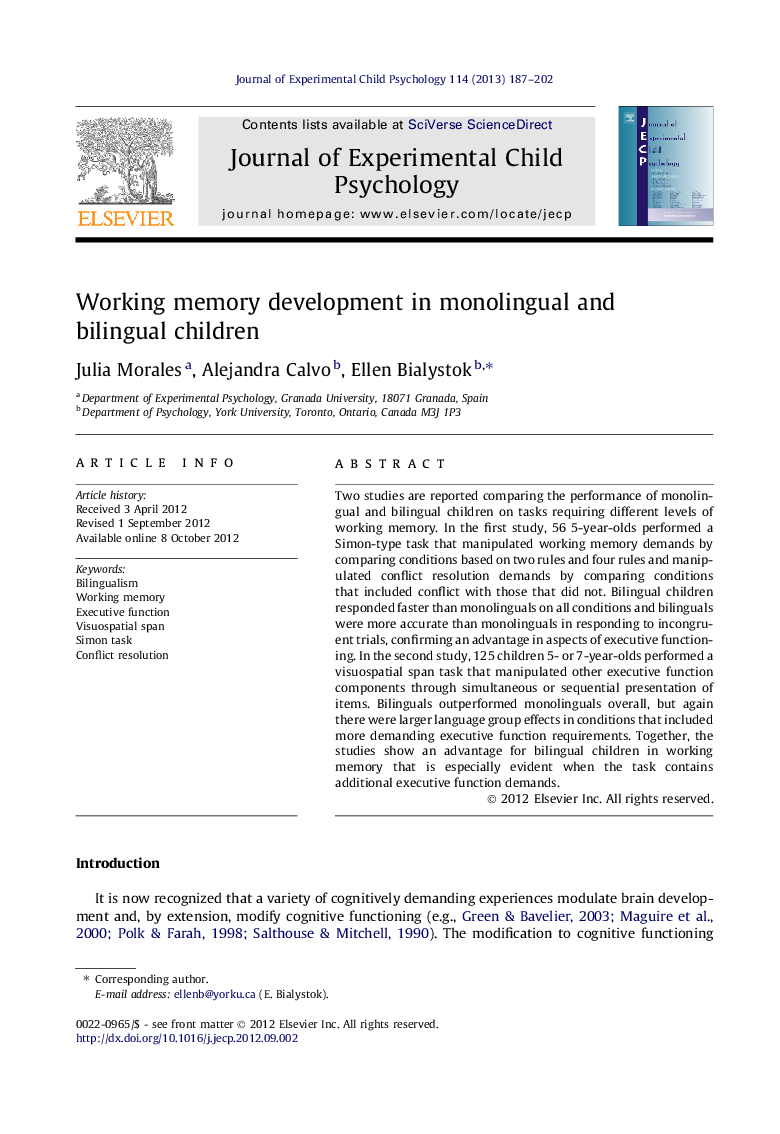| Article ID | Journal | Published Year | Pages | File Type |
|---|---|---|---|---|
| 918303 | Journal of Experimental Child Psychology | 2013 | 16 Pages |
Two studies are reported comparing the performance of monolingual and bilingual children on tasks requiring different levels of working memory. In the first study, 56 5-year-olds performed a Simon-type task that manipulated working memory demands by comparing conditions based on two rules and four rules and manipulated conflict resolution demands by comparing conditions that included conflict with those that did not. Bilingual children responded faster than monolinguals on all conditions and bilinguals were more accurate than monolinguals in responding to incongruent trials, confirming an advantage in aspects of executive functioning. In the second study, 125 children 5- or 7-year-olds performed a visuospatial span task that manipulated other executive function components through simultaneous or sequential presentation of items. Bilinguals outperformed monolinguals overall, but again there were larger language group effects in conditions that included more demanding executive function requirements. Together, the studies show an advantage for bilingual children in working memory that is especially evident when the task contains additional executive function demands.
► Monolingual and bilingual 5- to 7-year-olds performed visuospatial working memory tasks. ► Included conflict tasks requiring control to ignore distraction and span tasks. ► Bilingual children outperformed monolinguals, especially when control demands greater. ► Evidence for both independence (diversity) and interaction (unity) with other control demands.
